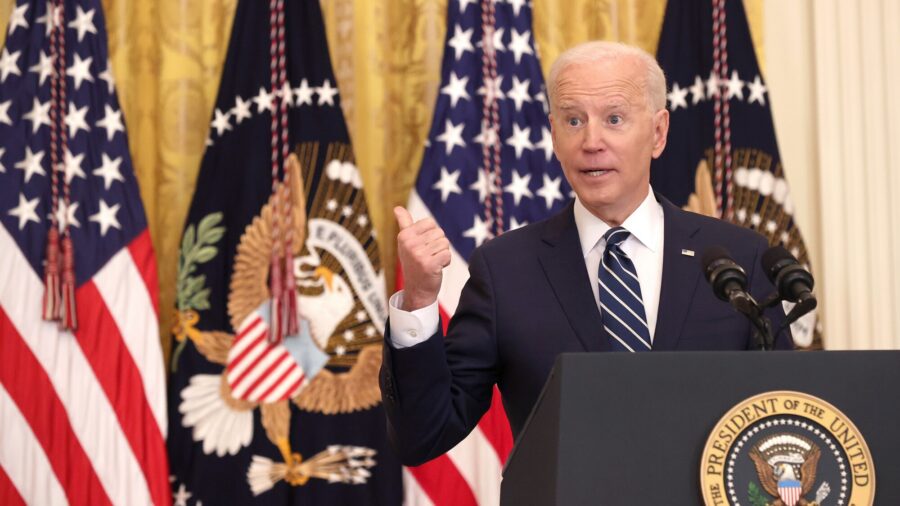NEW CASTLE, Del.—U.S. President Joe Biden said he suggested to British Prime Minister Boris Johnson in a phone call on Friday that democratic countries should have an infrastructure plan to rival China’s Belt and Road initiative.
“I suggested we should have, essentially, a similar initiative, pulling from the democratic states, helping those communities around the world that, in fact, need help,” Biden told reporters.
The Trump administration rolled out a so-called “Blue Dot Network” aimed at competing with China’s Belt and Road initiative in November 2019.
Then-U.S. Commerce Secretary Wilbur Ross said the private-sector-led investment network was to offer clean infrastructure and clean financing, and would include countries committed to “sustainable infrastructure development.”
Started with allies in Australia and Japan, the network is “a globally recognized seal of approval for major infrastructure projects, letting people know that projects are sustainable and not exploitative,” according to the U.S. government website.
China’s Belt and Road Initiative (BRI) is a multi-trillion-dollar infrastructure scheme launched in 2013 by President Xi Jinping involving development and investment initiatives that would stretch from East Asia to Europe.
The project would significantly expand the ruling Chinese Communist Party’s economic and political influence, raising concerns in the United States and elsewhere.
Biden’s remarks came after he said on Thursday he would prevent China from passing the United States to become the leading model for the world, vowing to invest heavily to ensure that American values prevail.
Over 100 countries have signed agreements with China to cooperate in BRI projects like railways, ports, highways and other infrastructure. According to a Refinitiv database, as of mid-last year, over 2,600 projects at a cost of $3.7 trillion were linked to the initiative.
However, China said last year that about 20 percent of BRI projects had been “seriously affected” by the coronavirus pandemic.
There are also been pushback against BRI from countries that have criticized projects as costly and unnecessary. Beijing scaled back some plans after several countries sought to review, cancel or scale down commitments, citing concerns over costs, erosion of sovereignty, and corruption.
By Jarrett Renshaw. The Epoch Times contributed to this article.


